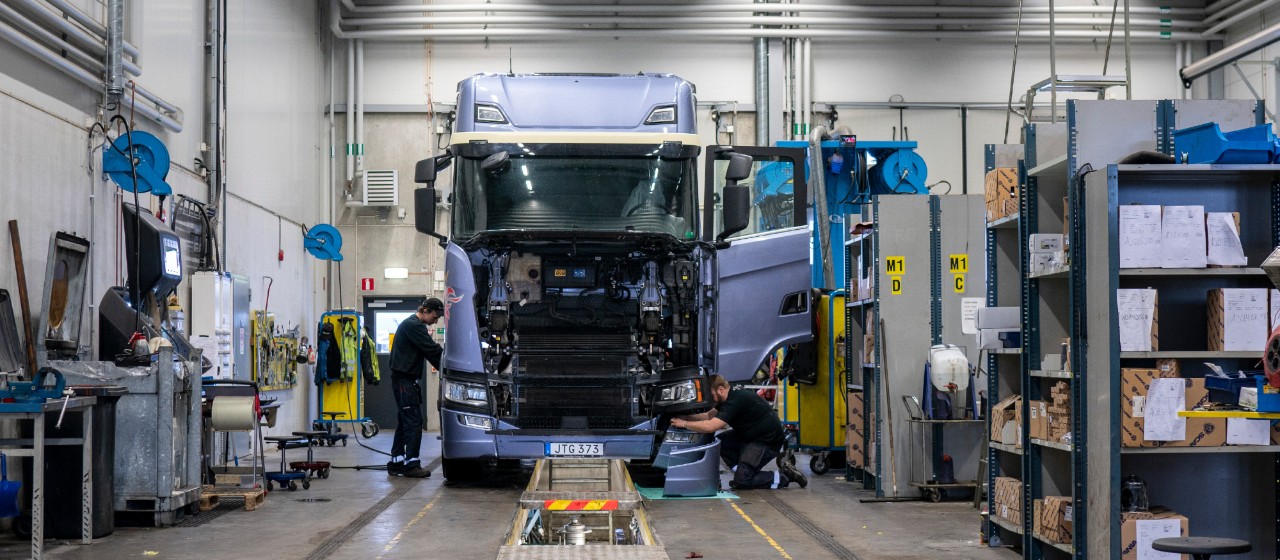
Flexing our service muscles
29 MAY 2018
Scania Flexible Maintenance is reaching more and more of our customer base, providing businesses with optimised services that can maximise their vehicles’ uptime.
Scania has now signed more than 50,000 Flexible Maintenance contracts since the service was initially launched less than two years ago. Flexible Maintenance provides vehicle servicing based on real-time operational data and actual vehicle usage. Each truck receives exactly the maintenance it needs and, in most cases, spends more time on the road.
“Throughout the world some 300,000 Scania vehicles are now connected and, of these, one-sixth have opted for Flexible Maintenance, which is incredible,” says Product Manager Niklas Olsson, Global Service Concepts.
The UK is a strong market for Flexible Maintenance
The United Kingdom is among the countries where the service has its greatest market penetration. Since Flexible Maintenance launched there in December 2016, more than 14,000 contracts have been signed.
“It has provided great opportunities to plan services based on how fleets operate,” explains Mark Grant, Services Director at Scania Great Britain.
“For example, the landscape is completely flat here in eastern England with not a hill in sight, which is very different from operating in the Scottish mountains. We can offer a service regime that reflects varying types of operations. Ultimately, this helps optimise the customer’s total operating economy, which is what we at Scania strive for.”
A more proactive approach to maintenance
For Scania’s global network of workshops, Flexible Maintenance has meant a more proactive approach. Rather than waiting for customers to call in for services, the workshop itself contacts the customer in good time when the continuously-optimised service plan indicates the need for maintenance.
“It really is a change of mindset for our workshops,” says Niklas Olsson. “It has also resulted in better utilisation of workshop capacity and improved customer uptime since work can be gainfully planned in advance.”